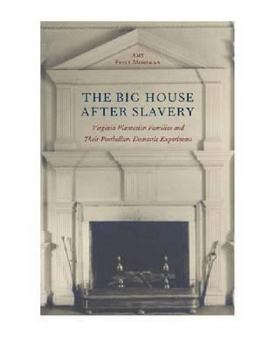The Big House After Slavery: Virginia Plantation Families and Their Postbellum Domestic Experiment
(Part of the A Nation Divided: New Studies in Civil War History Series and A Nation Divided: Studies in the Civil War Era Series)
The Big House after Slavery examines the economic, social, and political challenges that Virginia planter families faced following Confederate defeat and emancipation. Amy Feely Morsman addresses how men and women of the planter class responded to postwar problems and how their adaptations to life without slavery altered their marital relationships and their conceptions of gender roles.
Unable to afford many servants in the new free labor economy, many of Virginia's former masters put themselves to work on their plantations, and their wives had to expand their responsibilities as well, taking on the tasks of cooking and cleaning in addition to working in the garden, the henhouse, and the dairy. Laboring in these ways and struggling to maintain their standing as elites contributed to an identity crisis among Virginia planters. It also led them to practice mutuality within their own marriages and to reconsider what proper Southern womanhood and manhood meant in the new postwar order.
Using newspapers, periodicals, organization records, and numerous letters from Virginia plantation families, Morsman captures how these frustrated elites made sense of embarrassing postwar changes, in the private but also in the public spheres they inhabited. Morsman suggests that the planters' adaptations may have been carried forward by their adult children away from the crumbling plantations and into the urban households of the New South.
Related Subjects
History




